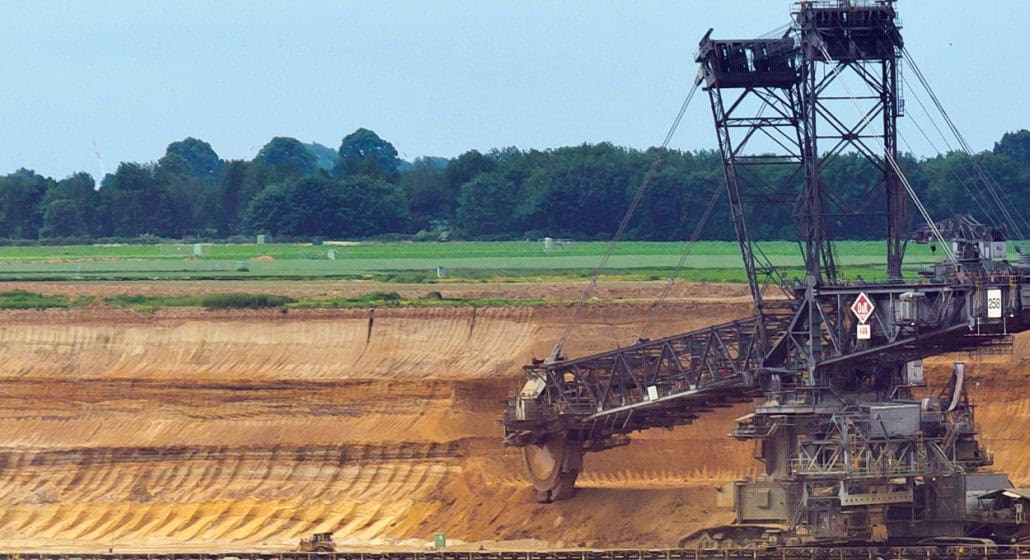Image: Wikimedia/Raimond Spekking. Used under Creative Commons Attribution-Share Alike 4.0
Does the mining sector in Africa have all the requisite best standards in place to ensure both adequate investment and sustainable impact on the environment and the livelihood of communities affected by mining?
The answer to this question is a mixed bag of legislative and negotiation practices that depends on the country in which a mining company does business, according to experts in the field who were participating in a webinar hosted by the National School of Government on 12 July. Titled Structuring, Negotiating and Managing Mining Concessions, the event sought insights from speakers from Botswana, the DRC, Zambia, and locally, on the topic.
Moses Tshetlhane, director of mineral affairs in Botswana’s ministry of minerals and energy, shared that his country regulates the impact of a potential mining company seeking to excavate in the country early in the negotiation stage. The contract negotiation is an effort best carried out not just by government’s minerals function, but also by the country’s finance department and attorney-general, to ensure that the government protects itself from potential abuse.
“A mining contract has to facilitate, first and foremost, that the project becomes feasible [from a geoscience and environmental perspective] … we also have to look at what the project has to contribute to the economy,” he said, adding that there must be a balance between the two so that the government in question does not burden the project upfront with financial obligations so much so that it collapses.
Direct investment vs environmental impact
On the issue of how countries balance the need for direct investment in the economy with the likely impact on the environment, Tshetlhane argued that this needs to be factored in at the beginning of a project and not later on, or after the contract has ended, as it involves a significant amount of funds.
“In Botswana when a company applies for a mining license, they have probably worked out what the environmental cost of rehabilitation is likely to be, and we even encourage that as they mine, where they’re able to rehabilitate, they do that because it helps them as the costs would probably be smaller than if they do it at a future point.”
Beyond that, legislation regulating the sector requires companies to set up trust funds, so that the moment the excavator hits the overbank, there should be a bank guarantee or rehabilitation fund that is set up. As they mine and put these funds aside, it becomes easier to rehabilitate at the end of their project, so that also works in the mining company’s favour.
This is also encouraged by Dr Sulemanu Koney, CEO of the Ghana Chamber of Mines, who argued that the closure and rehabilitation of mines also must be negotiated and funded at the beginning of the project, to avoid mishaps. Most mining companies come from outside the shores of the continent and are headquartered in foreign jurisdictions, so should a company find itself bankrupt and unable to continue its mining efforts, the burden often falls on the country contracted to them to manage the losses incurred there.
On the issue of the value of mining investment and managing laws that do not deter it, Tshetlhane said it’s important for governments to be transparent and companies to know about both the incentives such as taxes that a country offers, as well as the standards by which they will be expected to practice.
“Also let them know about the obligations of looking at such things as the environment. It shouldn’t be a surprise that when they hit your shores it’s only now that they learn of these obligations … there are no shortcuts to looking after the environment.”
Maximising mining benefits for the country
Dr Muchemwa Sinkala, an academic and economist in Zambia, says many African countries generate revenue from minerals, and this is why a new approach that differs from the practice of the past is necessary. Investors in the mining sector must be enticed to not take minerals in their raw form to only process in their own countries.
“A number of African countries have developed policies to deal with industrialisation, but most are not implementing them. When we negotiate, we need to bring in the fact that we want these minerals to be used within our country. Then we get to see the benefit trickling down in terms of job creation. Even our gross domestic products in most countries will go up.”
To use Zambia as an example, it has been mining for over 100 years, but the gross domestic product does not reflect that, he added. “We have everything within our hands to ensure that we provide guidance and we keep the benefits that we want from these minerals. Investors who come into our countries will do what you tell them, if you open up and negotiate your wishes in the beginning.”
Corruption Watch (CW) has been part of Transparency International’s Accountable Mining Programme since 2016. The programme, which involves over 20 of the movement’s chapters across the globe, widely covers the corruption of vulnerabilities in the application phase of mining and advocates for good governance, accountability, and transparency in the approval stage of the mining value chain.
It also empowers mining-affected communities in terms of their rights and responsibilities, and the policies and laws that should protect them. The implementation of these laws and policies, however, is an existential challenge for many of these communities, as the CW team that has engaged in various community engagements that form part of the EU Rallying Efforts to Accelerate Progress project, has discovered over time.

